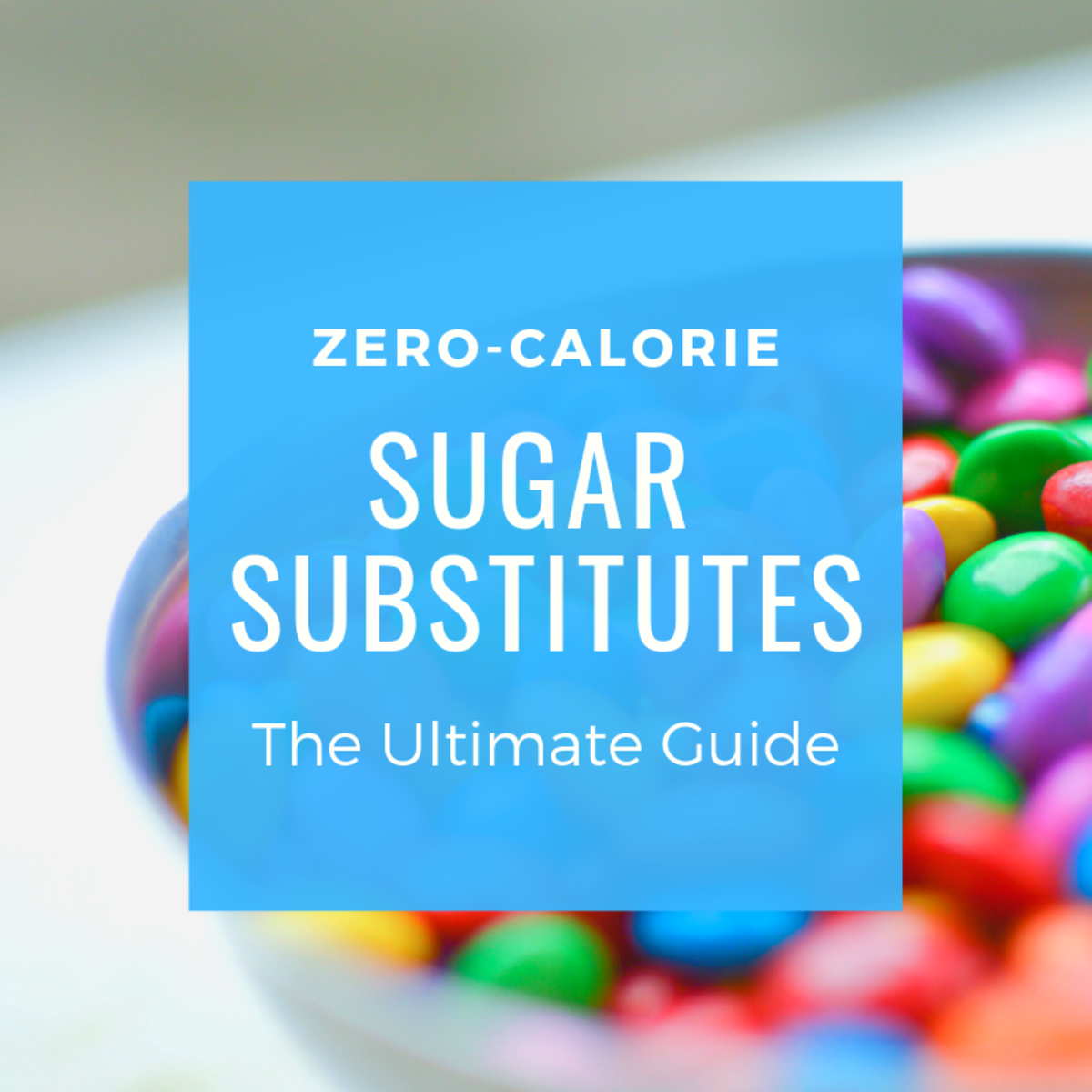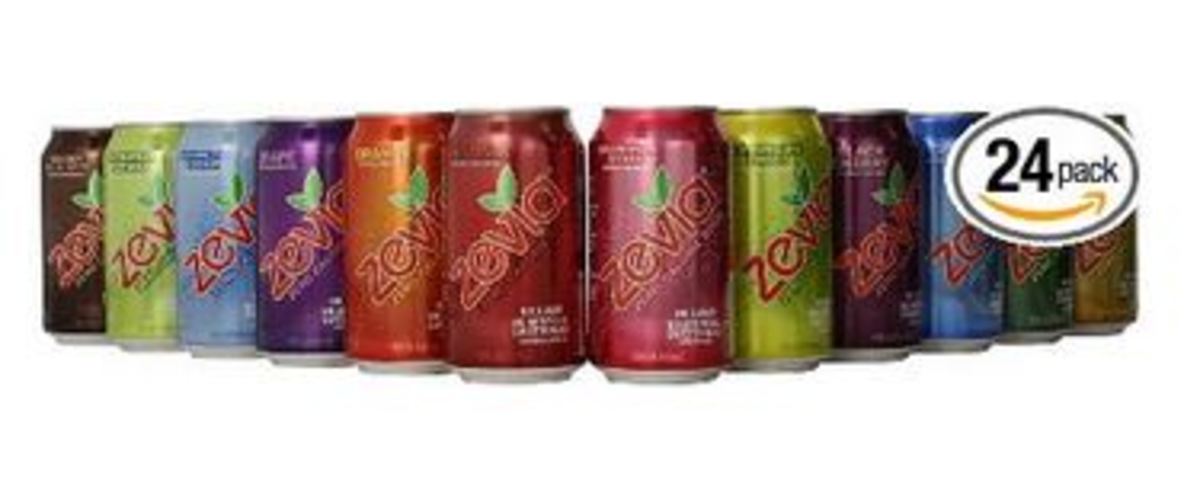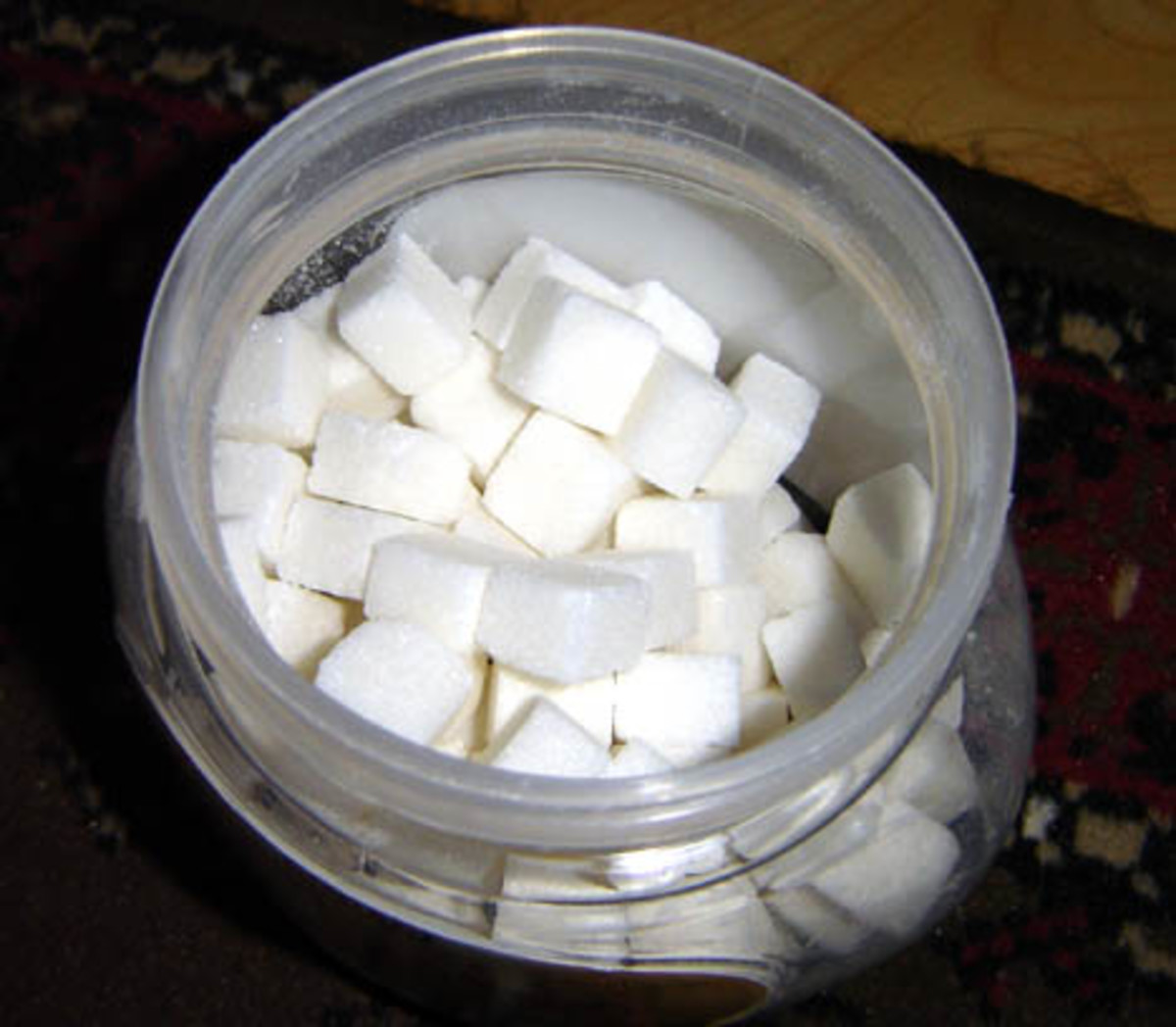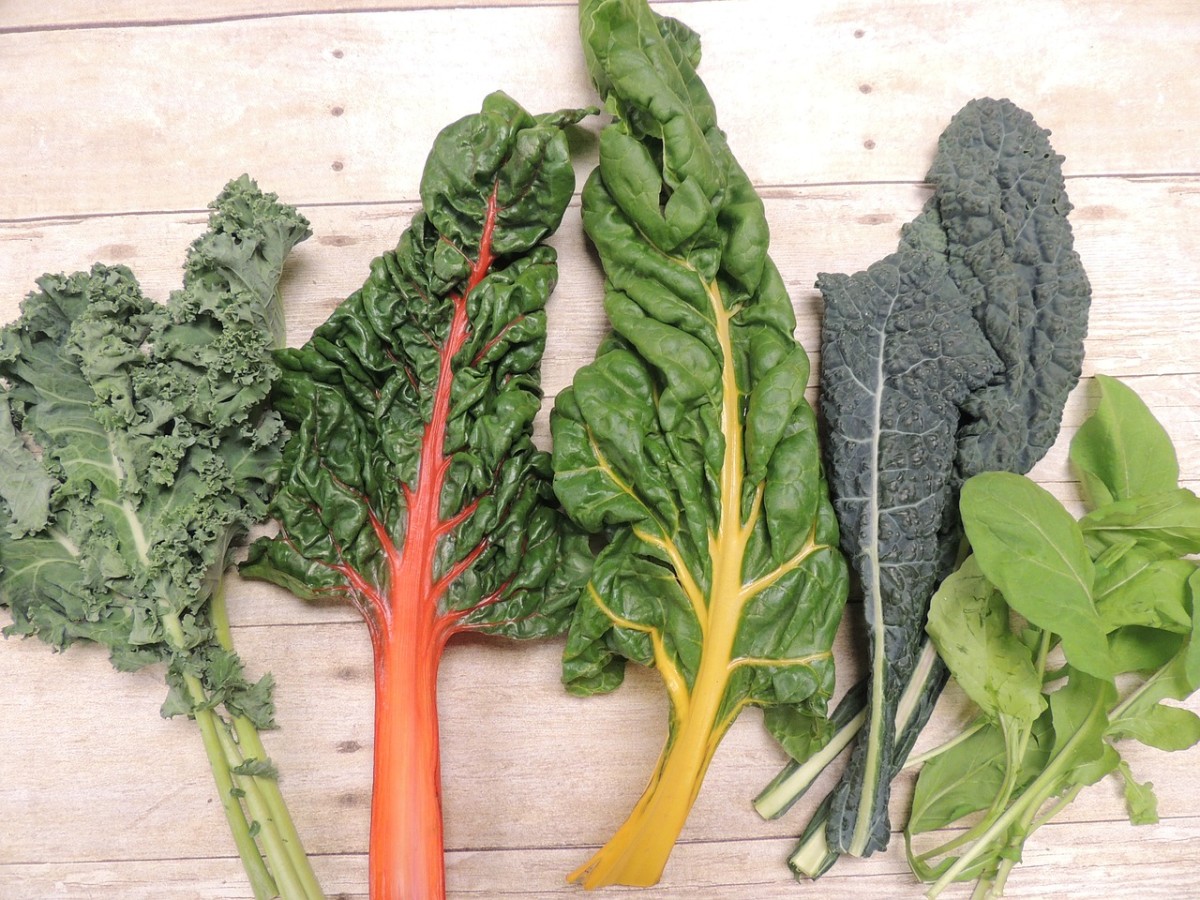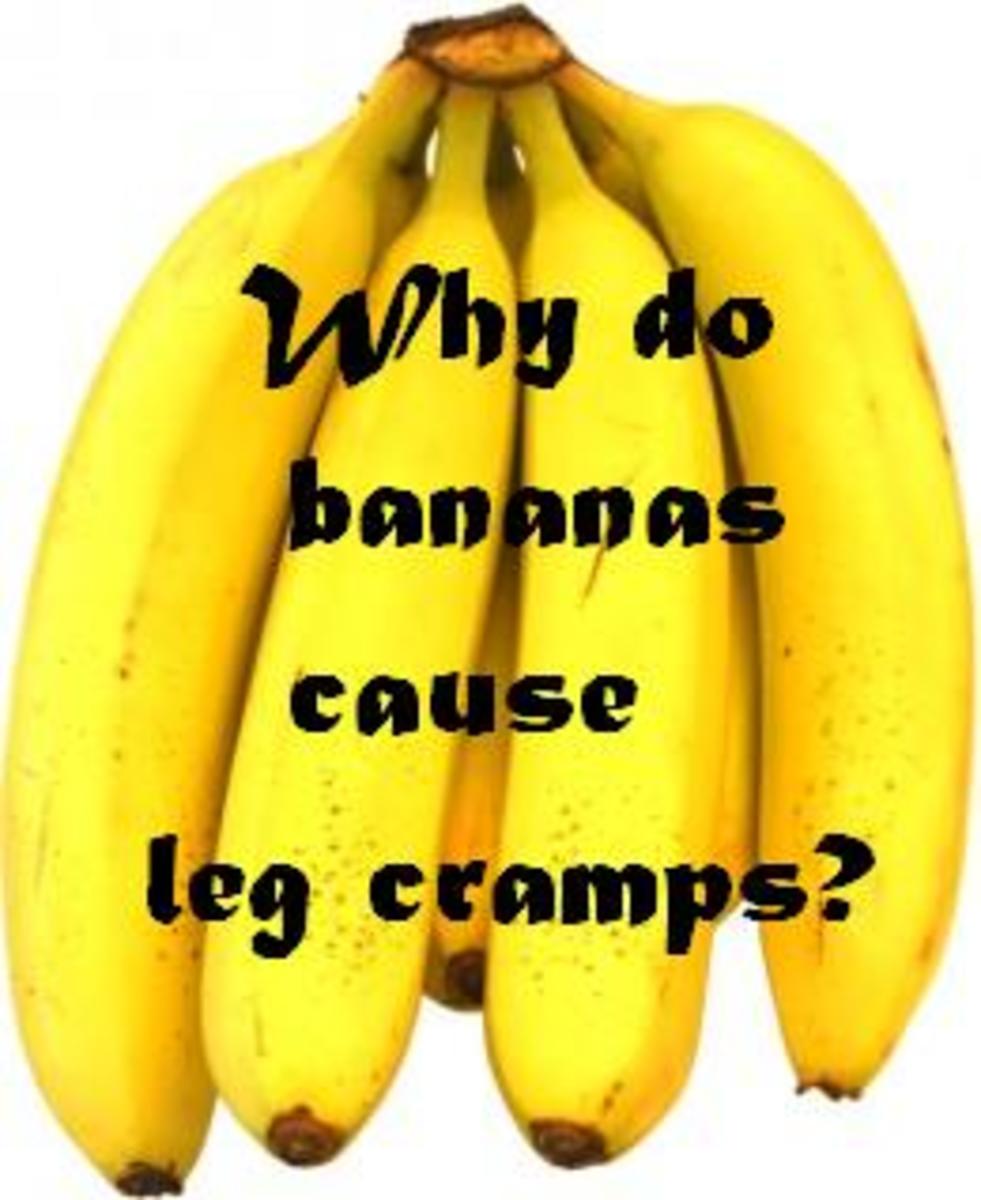Sugar and Sugar Substitutes
Sugar Crystals
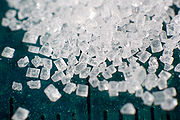
Sugar
Sugar is a crystalline substance that mainly comes from sugar cane and sugar beet. Natural sugar is also found in fruits,honey, and sugar maple from the maple tree. To humans sugar is sweet and this is where we run into trouble. Sugar is added to our foods and beverages,and can and does lead to type 2 diabetes, obesity, and tooth decay. The huge problem with sugar is that it tastes so darn good and once we start eating it we can't seem to stop. I have often wondered why vegetables can't taste as good. If they did we wouldn't have the obesity problem we have today in the United States. It seems the more sugar we eat the more we want. " Sweet is the first taste humans prefer from birth", states Christine Gerbstadt MD RD a dietitian and a spokeswoman for the American Diabetic Association. Sugar is a simple carbohydrate and and can quickly satisfy your hunger and give you a burst of energy but it is short lived. Carbohydrates stimulate your brain to release serotonin which affects your mood among other functions and is often called a feel good brain chemical. So sugar tastes good and makes us feel happy when we have it. Our bodies need a certain amount of sugar but we tend to overload it and that's not good.
Sugar Substitutes- Saccharin
So what do we do about our sugar cravings? Some people have strong will power and can limit their intake of sugars. Some of us can't. What do we do? Saccharin was first produced in 1878 by Constantin Fahlberg, a chemist working at the Johns Hopkins University. Saccharin was not widely used until World War 1 when there was a sugar shortage. Saccharin's popularity grew with the advent of the dieting craze in the 1960's and 1970's because Saccharin is calorie free. The Coca Cola company made Saccharin very popular with its product and first diet soft drink TAB. Some people love Saccharin but it has a bitter aftertaste that is very unpleasant. This hasn't stopped it's popularity. Arguments as to the safety of Saccharin to human life have been going on since 1907. In 1972 the USDA made an attempt to completely ban Saccharin but were unsuccessful.In 1977 the USDA again proposed a ban on Sacchrain but was met by public opposition especially among diabetics as Sacchrian was the only sugar substitue available at that time in the United States. The U.S. Congress instead made it required that Saccharin products carry warning labels stating that Saccharin may be a carcinogen. Many studies have been done on the effect of Saccharin and cancer and some studies say there is a correlation between Saccharin consumption and increased risk of caner and some studies say there is no correlation between the two. In 1991 the FDA formally withdrew its 1977 proposed ban on Saccharin and in 2000 the U.S. Congress repealed the law requiring Saccharin products to carry health warning labels.
Sugar Substitutes- Aspartame
Aspartame was first discovered in 1965 by James M Schlatter, a chemist working for G.D.Searle & Company while producing an anti-ulcer drug. Following the initial safety issues with Aspartame,people were still concerned about food additives and the FDA did not approve its use as a food additive until 1980. In 1980 the FDA approved Aspartame for use in dry goods only. In 1983 the FDA approved Aspartame for use in carbonated beverages, and in 1993 for use in other beverages, baked goods, and confections. In 1996 the FDA removed all restrictions from Aspartame and it was allowed to be used in all foods. Aspartame has a slight aftertaste but it's not as bad as Saccharin.
Stevia Plant
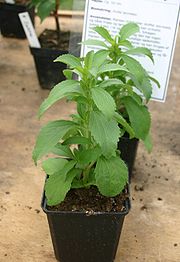
Sugar Substitutes- Stevia
The latest sugar substitute on the American market is a sweetener from the Stevia leaf. It is said to have 300 times the sweetness of sugar. Truvia is a sweetner produced by the Coca Cola company which contains the extract Rebiana taken from the Stevia leaf. Coca Cola takes the dried leaves of the Stevia plant and steeps them much like making tea. The Rebiana is then purified to provide a calorie free sweetener. Japan has been using the Stevia plant since 1971 in food products and beverages. Studies have been ongoing since 1985 and have generally found that the Stevia plant and its extracts show no harmful effects. In December 2008 the FDA gave the sweetener approval. I have been using Truvia for almost a year now and I love it. It has no discernible aftertaste that I can tell. It's a bit expensive though costing around $ 6.50 for 80 packets. I have not seen it in bulk as of now. So Truvia is the sugar substitute for me for the present time. I will certainly be watching for any studies or new developments about this sugar substitute.

